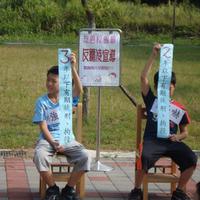#173: 校园 霸凌
#173: Mobbing in der Schule
#173: School Bullying
#173: Acoso escolar
#173 : L'intimidation à l'école
#173: Bullismo scolastico
#第173回:学校でのいじめ
#173: Pesten op school
#173: Bullying na escola
2016 年 12 月 , 北京 中关村 二小 的 一位 学生家长 在 网络 上 发布 了 一篇 文章 , 提到 自己 的 孩子 遭遇 校园 霸凌 , 事后 出现 了 入睡 困难 、 易怒 、 极度 需要 陪伴 和 情绪 激动 等 症状 。
Im Dezember 2016 veröffentlichte ein Student eines kleinen Studenten in Zhongguancun, Peking, einen Artikel im Internet, in dem er erwähnte, dass sein Kind an Mobbing in der Schule litt und danach Symptome wie Einschlafschwierigkeiten, Reizbarkeit, extreme Kameradschaft und emotionale Erregung entwickelte. .
In December 2016, a student of a small student in Zhongguancun, Beijing, posted an article on the Internet, mentioning that his child was suffering from school bullying. Afterwards, he developed symptoms such as difficulty falling asleep, irritability, extreme need for companionship and emotional excitement. .
En décembre 2016, un parent d'un élève de l'école primaire n°2 de Zhongguancun à Pékin a publié un article sur Internet, mentionnant que son enfant souffrait de harcèlement à l'école et présentait ensuite des symptômes tels que difficulté à s'endormir, irritabilité, besoin extrême de compagnie, et agitation émotionnelle. .
Nel dicembre 2016, un genitore di uno studente della Zhongguancun No.2 Primary School di Pechino ha pubblicato un articolo su Internet, menzionando che suo figlio soffriva di bullismo scolastico e in seguito ha sviluppato sintomi come difficoltà ad addormentarsi, irritabilità, estremo bisogno di compagnia e agitazione emotiva. .
2016年12月、北京のZhongguancun No. 2小学校の生徒の親がインターネットに記事を投稿し、彼の子供は学校のいじめに苦しみ、その後、眠りにつくのが難しい、イライラする、会社の極端な必要性、感情的な動揺などの症状を発症したと述べました。
家长 在 文中 质疑 学校 对 这件 事情 处理不当 。
Die Eltern bezweifelten, dass die Schule diese Angelegenheit im Text falsch behandelt.
Parents questioned the school's mishandling of this matter in the text.
記事の中で、両親はこの問題の学校の不適切な取り扱いに疑問を呈しました。
这 几乎 是 “ 校园 霸凌 ” 第一次 如此 大面积 地 进入 公众 视野 。
Es ist fast das erste Mal, dass „School Mobbing“ so viel in die Öffentlichkeit gerät.
This is almost the first time that “School Bullying” has entered the public's view so much.
C'est presque la première fois que le "harcèlement à l'école" est porté aux yeux du public à une si grande échelle.
「キャンパスいじめ」がこのような広大な地域で世間の注目を集めるのは、これがほぼ初めてです。
在此之前 , 中文 网络 上 更 常用 的 词语 是 : 校园 暴力 、 校园 欺凌 。
Prior to this, the more commonly used words on the Chinese network were: campus violence, campus bullying.
Avant cela, les mots les plus couramment utilisés sur l'Internet chinois étaient : violence scolaire, harcèlement scolaire.
これ以前は、中国のインターネットでより一般的に使用されていた言葉は、学校の暴力と学校のいじめでした。
霸凌 , 是 直接 从 英文 “bullying” 音译 过来 的 。
Bullying is transliterated directly from the English "bullying".
Le harcèlement est directement translittéré de l'anglais "bullying".
いじめは、英語の「いじめ」から直接変換されます。
很多 家长 都 非常 关注 这件 事情 。
Many parents are very concerned about this matter.
De nombreux parents sont très préoccupés par cette question.
多くの親はこの問題について非常に心配しています。
网上 也 有 不少 人 回忆 了 自己 年少时 遭遇 校园 霸凌 的 经历 。
Many people on the Internet have also recalled their experiences of campus bullying when they were young.
De nombreuses personnes en ligne se sont également souvenues de leurs expériences de harcèlement scolaire lorsqu'elles étaient jeunes.
インターネット上の多くの人々はまた、彼らが若い頃の学校のいじめの経験を思い出しました。
校园 霸凌 一直 存在 , 只是 过去 被 大家 忽略 了 。
Campus bullying has always existed, but it has been ignored by everyone in the past.
Le harcèlement scolaire a toujours existé, mais il a été ignoré par tout le monde dans le passé.
キャンパスでのいじめは常に存在していましたが、過去には無視されていました。
很多 家长 或 老师 觉得 : 学生 之间 只是 闹着玩 的 。
Many parents or teachers feel that: Students are just playing around.
Beaucoup de parents ou d'enseignants pensent que : Les élèves ne font que plaisanter.
多くの親や教師は次のように感じています。学生はただ遊んでいるだけです。
又 或者 : 孩子 不懂事 , 长大 了 就 好 了 。
Or: The child is not sensible, just grow up.
Ou : L'enfant est ignorant, tout ira bien quand il sera grand.
または:子供が無知である場合は、ただ成長します。
随着 心理健康 知识 的 普及 , 越来越 多 的 人 意识 到 校园 霸凌 的 严重性 。
With the popularity of mental health knowledge, more and more people are aware of the seriousness of campus bullying.
Avec la vulgarisation des connaissances en santé mentale, de plus en plus de personnes sont conscientes de la gravité du harcèlement scolaire.
メンタルヘルスの知識が普及するにつれ、キャンパスいじめの深刻さに気づく人が増えています。
正视 它 的 存在 只是 第一步 , 如何 更 好地解决 这个 问题 , 无论是 学校 、 老师 还是 家长 都 有 很长 的 路 要 走 。
Just looking at its existence is only the first step. How to solve this problem better, whether it is a school, a teacher or a parent has a long way to go.
Faire face à son existence n'est qu'un premier pas, comment mieux résoudre ce problème est un long chemin à parcourir pour les écoles, les enseignants et les parents.
その存在に立ち向かうことは、最初の一歩に過ぎません。学校であれ、教師であれ、親であれ、この問題をよりよく解決する方法は、まだまだ先の長い道のりです。
注 : 文中 提到 的 文章 是 《 每 对 母子 都 是 生死之交 , 我要 陪 他 向 校园 霸凌说 NO!
Note: The article mentioned in the article is "Every pair of mother and child are life and death, I want to accompany him to the school bullying to say NO!
Remarque : L'article mentionné dans l'article est : "Chaque paire de mère et de fils sont des amis de la vie et de la mort, je veux l'accompagner pour dire NON à l'intimidation sur les campus !
注:記事に記載されている記事は、「すべての母と息子は生と死の友人です。私は彼に同行して、キャンパスのいじめにノーと言いたいです!
》。
》.

